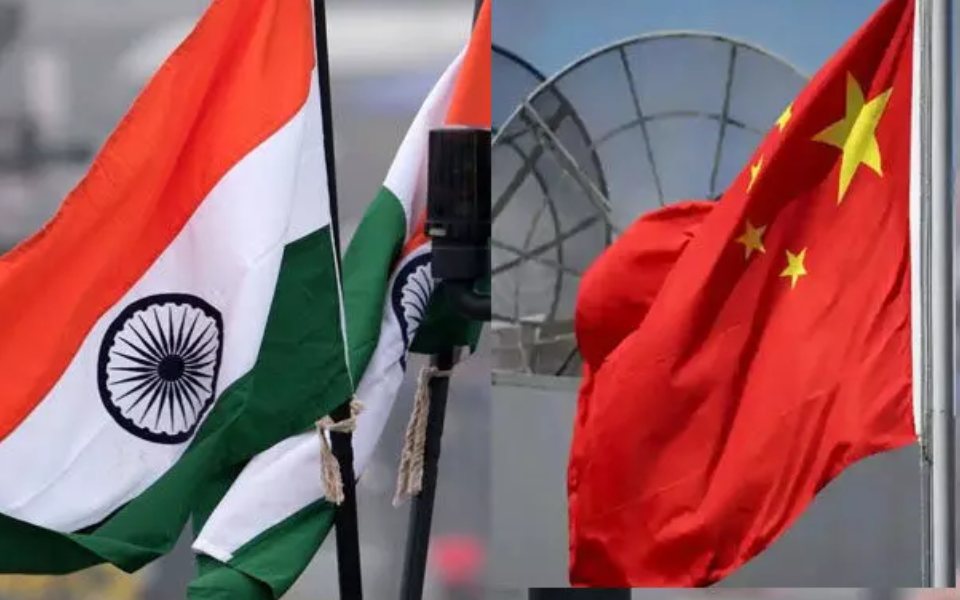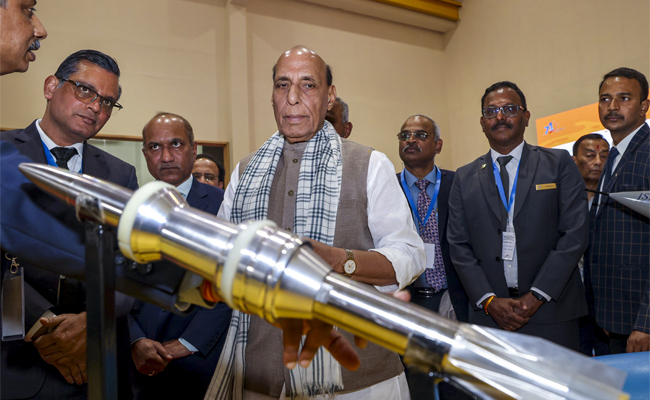Beijing, Apr 1: China has released a fourth list of 30 new names of various places in Arunachal Pradesh amid Beijing’s stepped-up assertions in recent weeks to re-emphasise its claim over the Indian state.
India has been rejecting China renaming places in Arunachal Pradesh, asserting that the state is an integral part of the country and assigning "invented" names does not alter this reality.
The Chinese Ministry of Civil Affairs released the fourth list of standardised geographical names in Zangnan, the Chinese name for Arunachal Pradesh which Beijing claims as part of south Tibet, state-run Global Times reported on Sunday.
The official website of the ministry posted 30 additional names for the region.
Set to take effect from May 1, the implementation measures stipulate in Article 13 that "place names in foreign languages that may harm China's territorial claims and sovereignty rights shall not be directly quoted or translated without authorisation," the report said.
The Chinese Civil Affairs Ministry released the first list of the standardised names of six places in Zangnan was released in 2017, while the second list of 15 places was issued in 2021 followed by another list with names for 11 places in 2023.
The recent statements by China to reassert its claims over the state started with Beijing lodging a diplomatic protest with India over Prime Minister Narendra Modi’s visit to Arunachal Pradesh, where he dedicated to the nation the Sela Tunnel built at an altitude of 13,000 feet in Arunachal Pradesh.
The tunnel will provide all-weather connectivity to strategically located Tawang and is expected to ensure better movement of troops along the frontier region.
Chinese Foreign and Defence ministries have issued a flurry of statements to highlight China's claims over the area.
External Affairs Minister S Jaishankar on March 23 dismissed China's repeated claims on Arunachal Pradesh as "ludicrous" and that the frontier state was a "natural part of India".
"This is not a new issue. I mean, China has laid claim, it has expanded its claim. The claims are ludicrous to begin with and remain ludicrous today," he said in response to a question on the Arunachal issue after delivering a lecture at the prestigious Institute of South Asian Studies (ISAS) of the National University of Singapore (NUS).
"So, I think we've been very clear, very consistent on this. And I think you know that is something which will be part of the boundary discussions which are taking place," he said.
Beijing was also peeved over the US statement recognising Arunachal Pradesh as part of Indian territory.
State Department Principal Deputy Spokesperson Vedant Patel said on March 9 that "the US recognises Arunachal Pradesh as Indian territory, and we strongly oppose any unilateral attempts to advance territorial claims by incursions or encroachments, military or civilian, across the Line of Actual Control."
Both the Chinese Foreign and Defence Ministries criticised the US statement saying that the China-India boundary issue is a matter between the two countries and has nothing to do with Washington.
On the latest release of names by the Chinese civil affairs ministry, the Global Times report said the translation of names of the place in foreign languages or minority languages should comply with standards formulated by related organs of the State Council, which is the central cabinet of China.
Standard translations are made public through notices, the national database for geographical names and official publications on geographical names, according to the implementation measures, it said.
The State Council issued a revised regulation on place names in April 2022, which applies to naming, renaming, usage, cultural protection and other management of geographical names within Chinese territories, it said.
Let the Truth be known. If you read VB and like VB, please be a VB Supporter and Help us deliver the Truth to one and all.
New Delhi: A visit by the US Ambassador to India, Sergio Gor, to Chandigarh on Monday has triggered sharp criticism from opposition leaders and social media users, raising questions about national security and foreign policy.
On X, Ambassador Gor announced his visit, writing, “Just landed in Chandigarh. Looking forward to visiting the Western Command of the Indian Army.”
Just landed in Chandigarh. Looking forward to visiting the Western Command of the Indian Army
— Ambassador Sergio Gor (@USAmbIndia) February 16, 2026
Soon after, opposition voices questioned the broader implications of the visit. Congress Kerala, in a post, commented, “Why so much panic? We’ve already seen Pakistan's ISI getting access to Pathankot Airbase with this government's blessings. Didn't they say then ‘Modi ne kiya ho to kuch soch samajh kar kiya hoga?’ Compared to that, this is very small.”
Why so much panic? We’ve already seen Pakistan's ISI getting access to Pathankot Airbase with this government's blessings.
— Congress Kerala (@INCKerala) February 16, 2026
Didn't they say then "Modi ne kiya ho to kuch soch samajh kar kiya hoga?"
Compared to that, this is very small. pic.twitter.com/gNNuAGQBPC
Shiv Sena (UBT) leader Priyanka Chaturvedi also weighed in, writing, “Since India’s national strategic interests are now tied to what US wants India to do, this visit seems to sync with that.”
She further added, “India’s history will remember the de-escalation announcement between India and Pak was announced on social media by the US President before Indians got to know from their own government. US Ambassador is doing the job for his nation, who is doing for us? The answer is blowing in the wind.”
Since India’s national strategic interests are now tied to what US wants India to do, this visit seems to sync with that. India’s history will remember the de-escalation announcement between India and Pak was announced on social media by the US President before Indians got to… pic.twitter.com/rYMq5NhJHA
— Priyanka Chaturvedi🇮🇳 (@priyankac19) February 16, 2026
The visit comes against the backdrop of the growing US-India defence partnership.
Writer and political analyst @rajuparulekar commented on ‘X’, “East India Company is back!”
“Is it allowed for an ambassador to visit any army unit in india?” asked another user.
Several X users expressed concerns over the appropriateness of the visit.
One asked, “Is it allowed for an ambassador to visit any army unit in India?” Another wrote, “Why an ambassador visiting our army places? To talk to Chandigarh lobby for F-35?”
Why an ambassador visiting our army places ? To talk to chandigarh lobby for f-35 ??
— Rohan Sagar (@RohanSagar03) February 16, 2026
“We have completely sold Indian sovereignty. Rothschild the evil Bankers will now control NSE. Modi sold Bharat Mata to Trump . And now American imperialist is visiting our army command . Scary,” wrote another user.
“The Indian Army isn’t part of geopolitics, so why is he interested in visiting there?,” opined another.
The Indian Army isn’t part of geopolitics, so why is he interested in visiting there?
— Aditya Pratap Singh (@Adi_IIMCIAN) February 16, 2026
On Sunday, Gor welcomed Admiral Samuel Paparo, Commander of the United States Indo-Pacific Command (INDOPACOM), highlighting efforts to expand the growing US-India defence partnership.
In a post on X, Gor wrote, “Delighted to have @INDOPACOM Commander Admiral Samuel Paparo in India to expand the U.S.-India defense partnership. Now is the time to strengthen vital cooperation between our two nations.”
On Monday, Admiral Samuel J. Paparo Jr visited the headquarters of India’s Western Army Command along with the American envoy Sergio Gor. The delegation was briefed on the formation’s capabilities, its past operations, and future plans.
The American delegation also visited Bengaluru, where they met three start-ups, two in the space sector and one in defence, and participated in an Indo-US conference.





